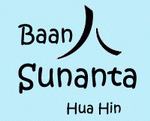There are several legal rights which either in isolation or in combination give foreigners the ability and confidence to buy secure interests in property and also to sell or transfer those rights to achieve capital gain. The most salient are that foreigners may have freehold ownership of a condominium title (with a proportional or strata interest in common land), can obtain long term registered transferable lease rights to land and or buildings, complete with options to purchase land (but not to exercise that option in their own name, unless the law should change), and hold freehold ownership of all buildings and improvements either existing or to be constructed upon leased land. A foreigner may also own up to 49% of the shares in a Thai company that owns property in Thailand and may be a director of that company. Purchasing a condominium is the easiest, simplest transaction. A condominium title (first established under the condominium act of 1979) is a title to a part of a building or buildings with multiple owners, and a fractional interest in the land (always a Chanott) and other common assets (such as a swimming pool) and common parts of the building (such as the stair well or lobby). The title will state the floor area of the private apartment, the ground area of the common land and the percentage interest which that apartment has in the common property. This percentage also represents the value of the voting interest in the condominium company or owners association. The law allows foreigners to hold 49% of the units in a condominium freehold while in certain condominium blocks a full 100 % of the units can be owned by foreigners on a freehold basis. One important requirement in order to qualify for freehold status is that the foreign currency funds for the purchase have been remitted from abroad and correctly recorded as such by a Thai bank. Before making any large transfer relating to a condo purchase be sure to check with the vendor, your lawyer or a local bank the correct procedure for remitting funds so that you receive the appropriate currency exchange forms or you may not qualify for foreign freehold. The foreign freehold is definitely the preferred structure for purchase of an condominium apartment; if you do choose another structure of "ownership", have it checked carefully (since most are likely to have tax or other implications that are not immediately apparent). Freehold prices for condo will be higher than leasehold prices to reflect the greater surety of ownership in this type of ownership. Buildings other than condominiums do not have any form of title document, but their sale or long lease can be registered at the Ampher (district) land office. Proof of ownership, must be established either from proof of construction, building permit or document showing previous sale-purchase (do not confuse this with the House License document, which is only a register of the houses occupants). Transfer of a building as distinct from it's land requires the posting of 30 days public notice (to see if anyone wishes to contest the ownership). Foreign nationals (aliens) may own a building (as distinct from it's land) and may register such transfer of ownership into their names at the local district office. If however, what you want is a house, the fact that you can't acquire freehold land should not be a deterrent. You may own the building freehold and together with a well constructed leasehold (typically a 30 year lease with two prepaid 30 year renewals) and a purchase option for the land (that could be exercised in the event the laws of foreign ownership changed - or you sold the property on to a Thai person or legal entity) you will have effective ownership, yet still remain within the laws of Thailand. |
| Hua Hin Accommodation | Rent Hua Hin | Hua Hin Deals | Hua Hin Property | Hua Hin Expat | Hua Hin |
| Hua Hin Apartments | Hua Hin Condos | Hua Hin Villas | Hua Hin Houses | Hua Hin Vacations | Hua Hin Beach |
| Bangkok Hotels | Thailand Hotels | Thailand Travel | Thailand Pictures |







